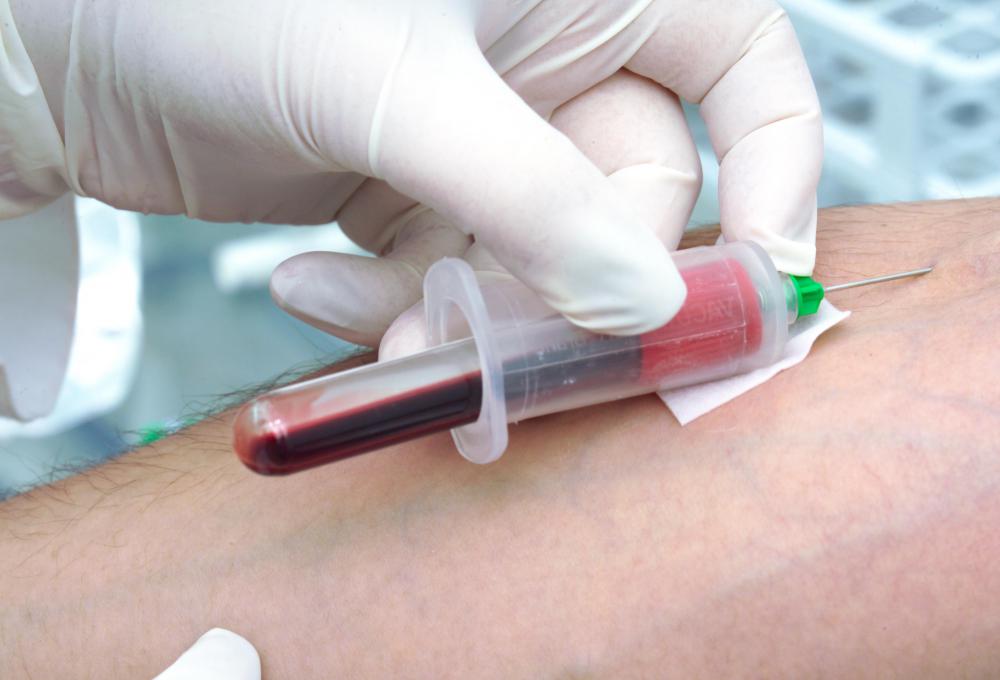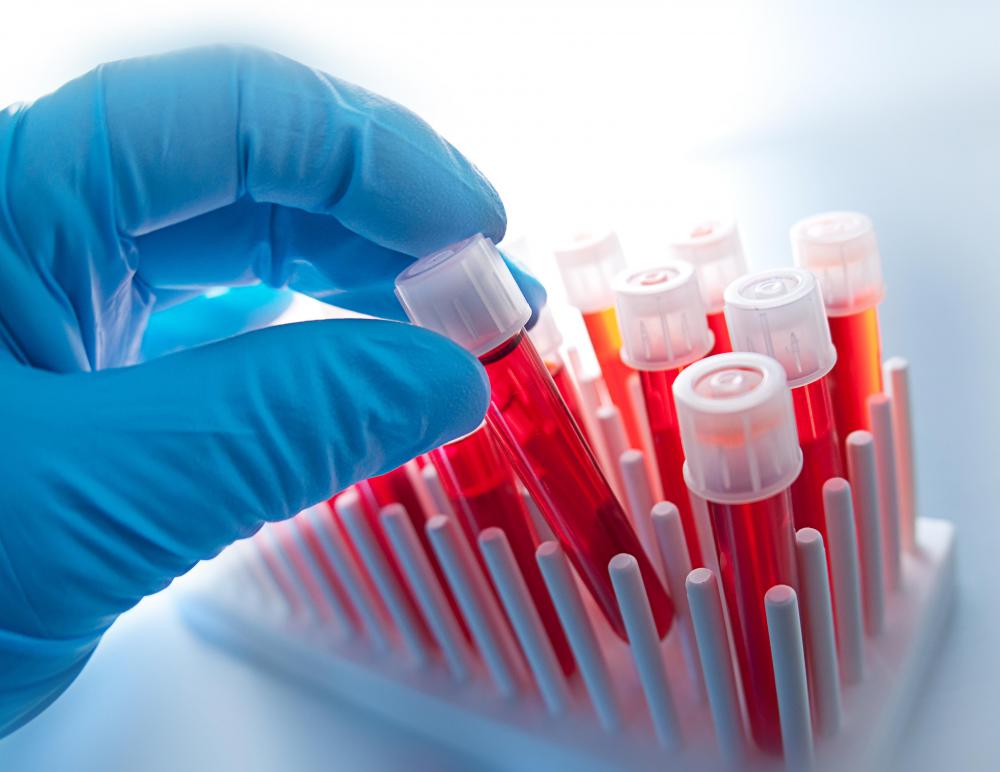At WiseGEEK, we're committed to delivering accurate, trustworthy information. Our expert-authored content is rigorously fact-checked and sourced from credible authorities. Discover how we uphold the highest standards in providing you with reliable knowledge.
What are the Different Phlebotomist Jobs?
There are many different settings for phlebotomist jobs. Some are within medical facilities, while others travel for various industries. Many companies require blood tests for job placement, or for insurance coverage, so phlebotomists have the option to travel to accommodate these needs. Others find jobs in hospitals, testing centers, or doctor's offices.
A phlebotomist's job is to draw blood. This is usually done by venipuncture, and the blood is collected in tubes. It is labeled and sent to a laboratory for diagnostic testing. To become a phlebotomist, the candidate must attend training courses at vocational school, and is usually required to be certified by a professional organization.

Most phlebotomist jobs are available in laboratory testing centers. Doctors send patients to these centers for various types of blood work. Phlebotomists in these positions deal with all types of patients, like pregnant women and little children, the elderly, and even employment candidates seeking mandatory drug testing. These jobs are generally stationary, meaning that the phlebotomist stays in one set location, and the patients come to them.

Phlebotomist jobs in a hospital usually require some movement around the facility. Blood samples must be collected from patients located in all different areas of the hospital. These phlebotomists generally have a mobile unit on wheels that contains all of the materials they need to perform their duties. A special carrier contains all of the labeled blood samples that are given to the hospital laboratory for diagnostic testing.

Traveling or mobile phlebotomist jobs are available for those that prefer a flexible schedule, and don't mind a bit of driving. Traveling phlebotomists are used in many industries, and can be found performing tests in places like geriatric centers, with private nurses, for life insurance candidates, or for blood drives. Sometimes they travel to individual homes, and other times to centers. They are usually reimbursed for travel expenses.
All phlebotomist jobs require the candidate to be impeccable with record keeping and safety. Instruments must be kept clean and sterilized. Vials must be labeled exactly right, so as not to risk mixing up one patient's records with another's. They must be able to work well with people, since many patients are nervous about having blood drawn.
AS FEATURED ON:
AS FEATURED ON:













Discuss this Article
Post your comments